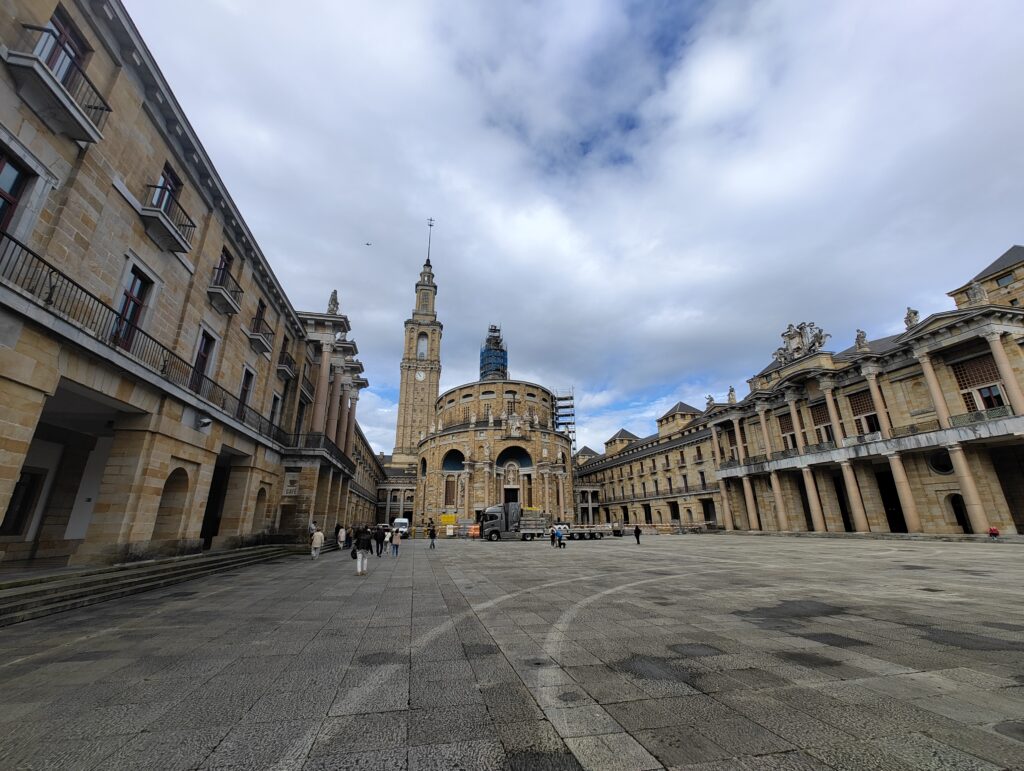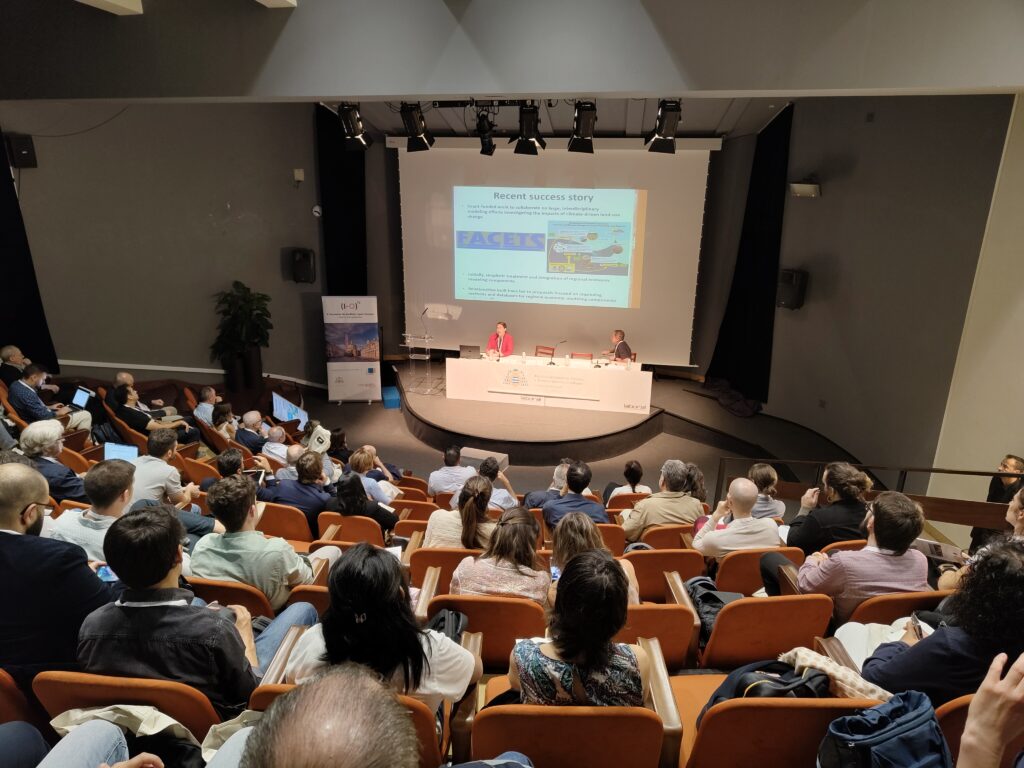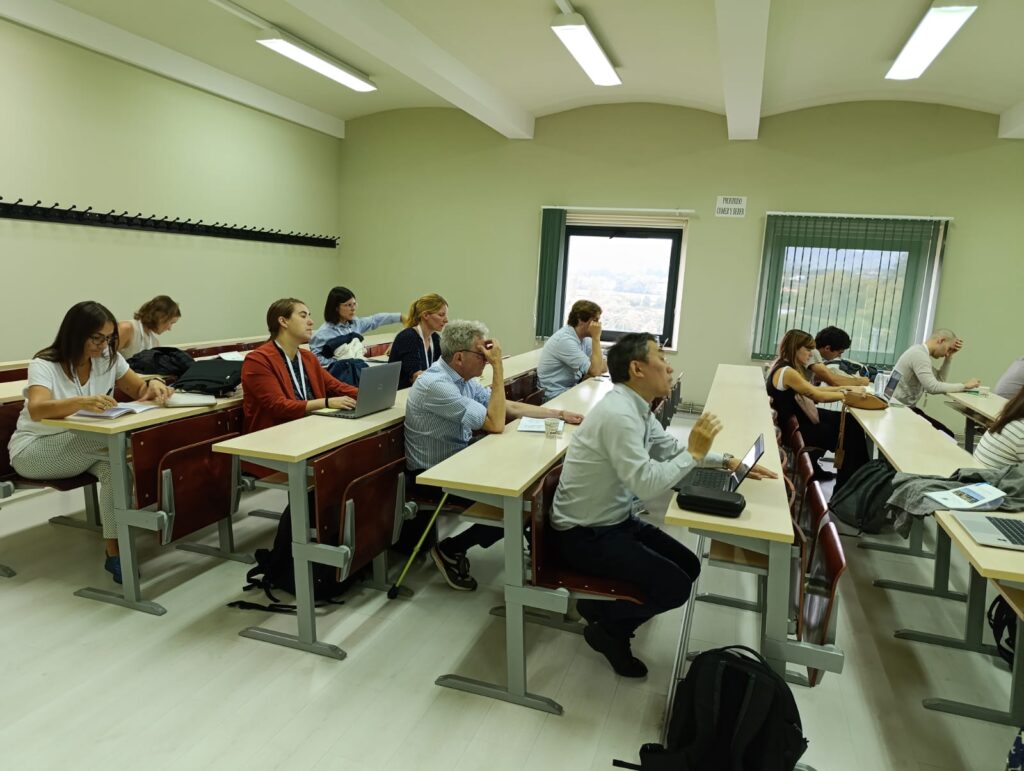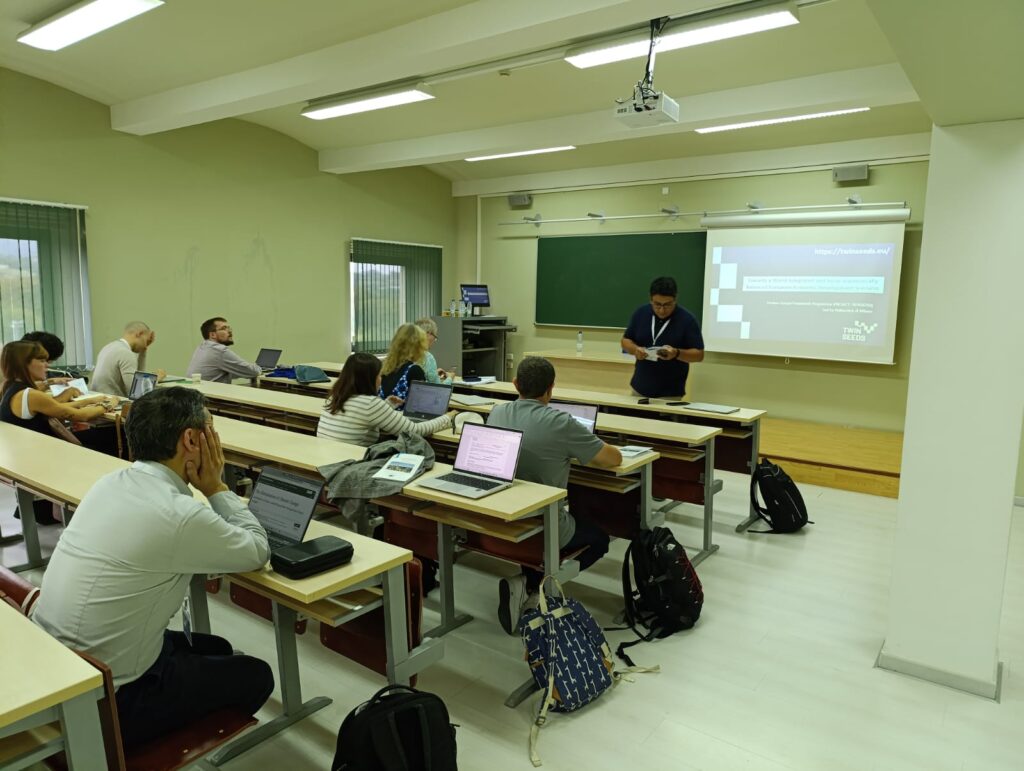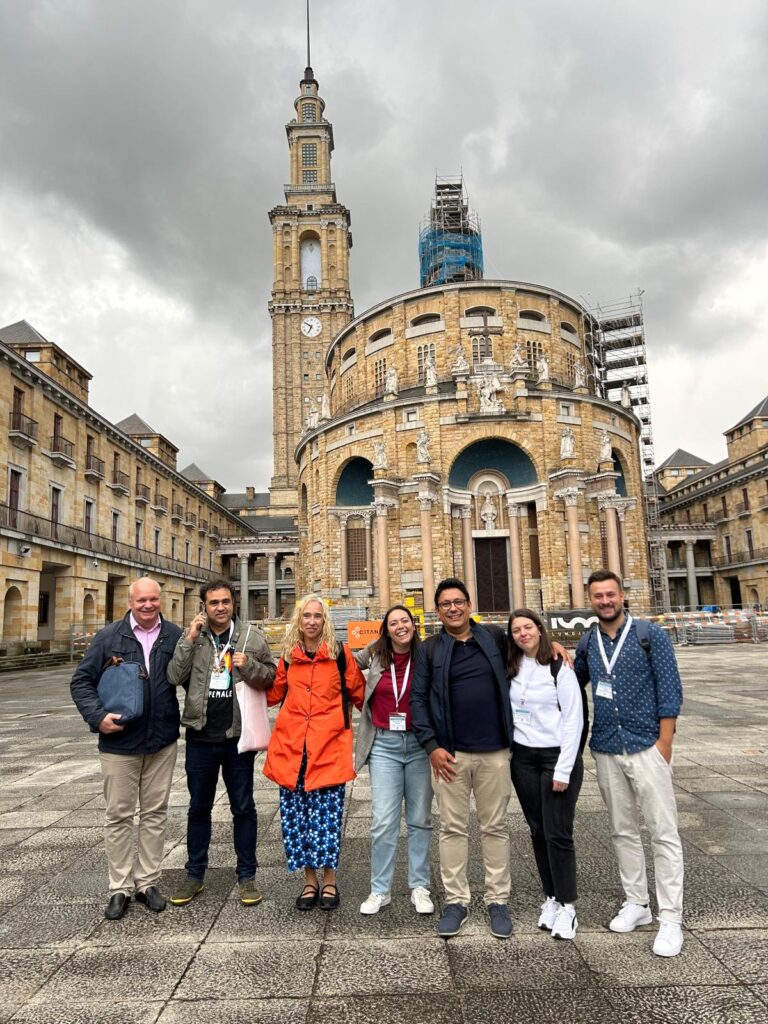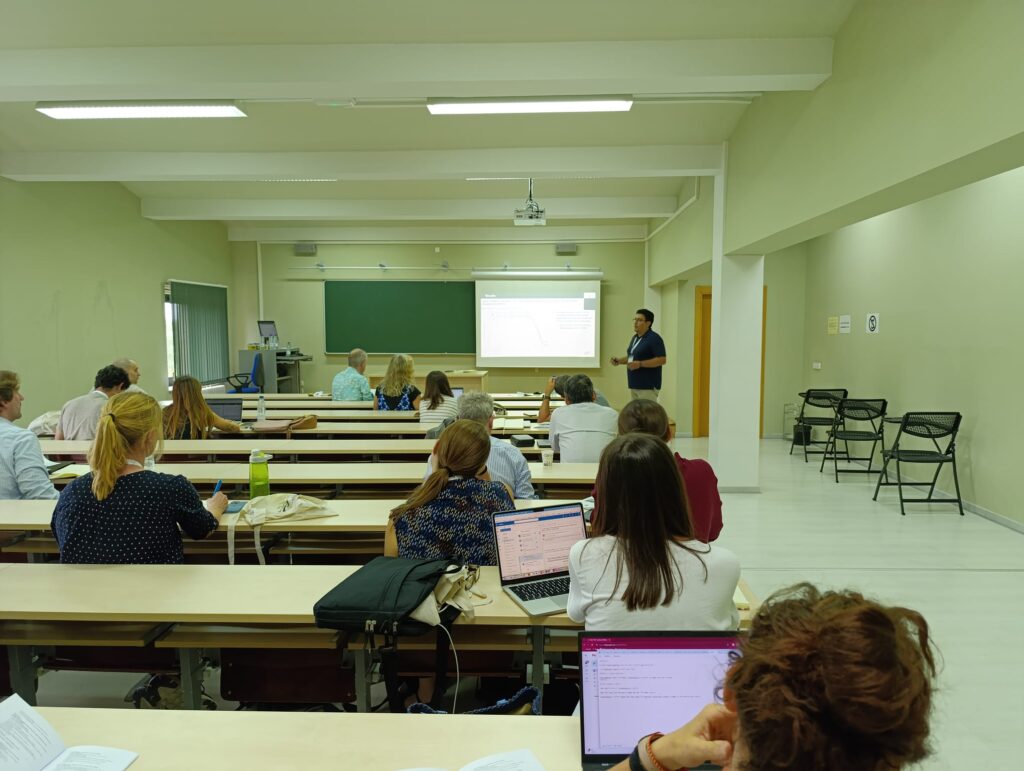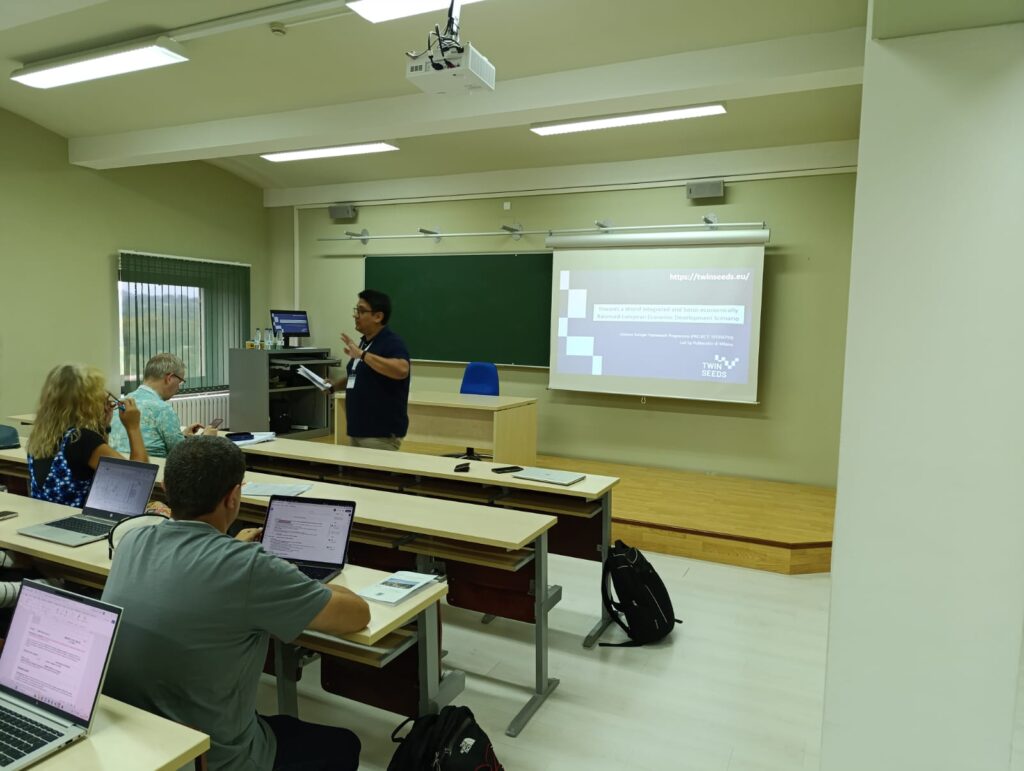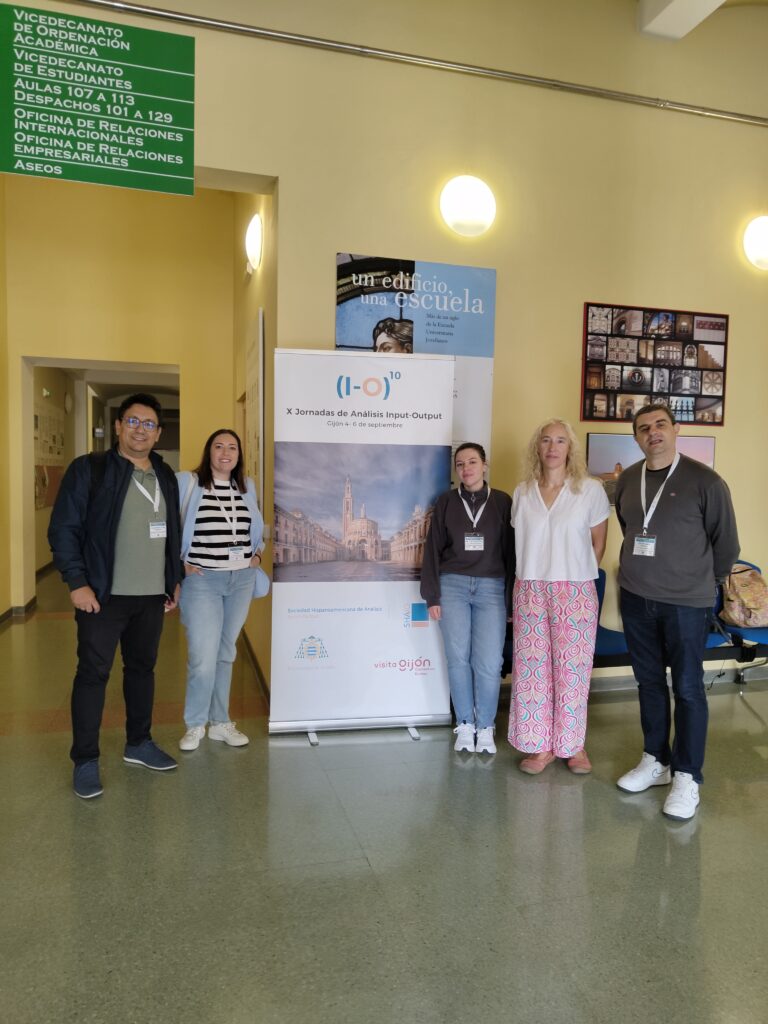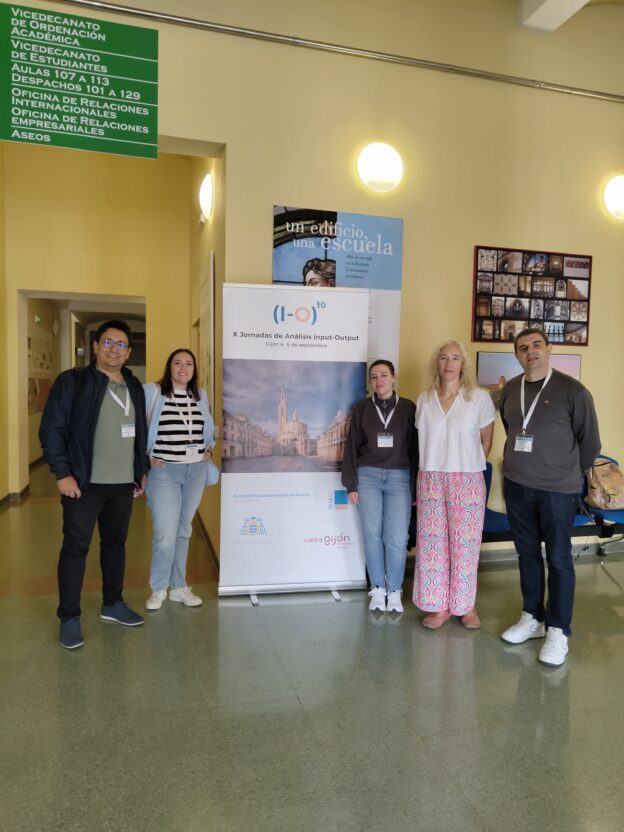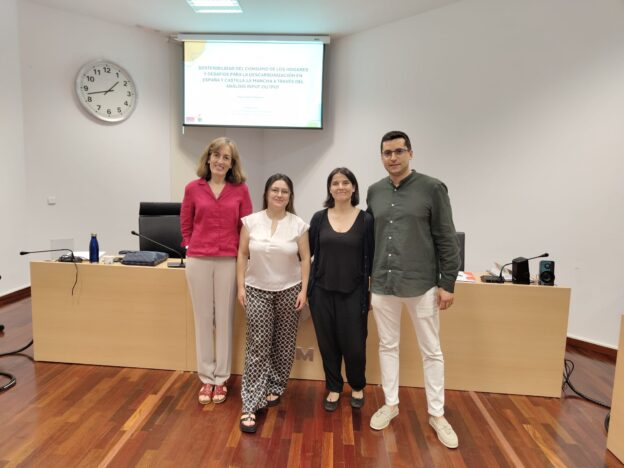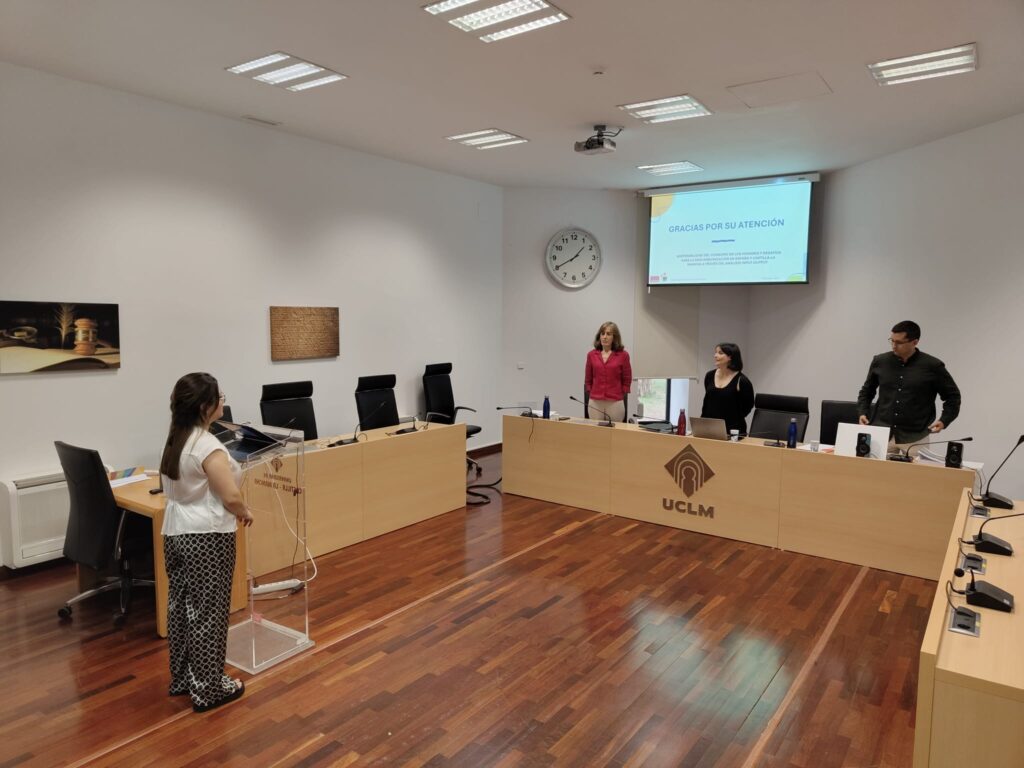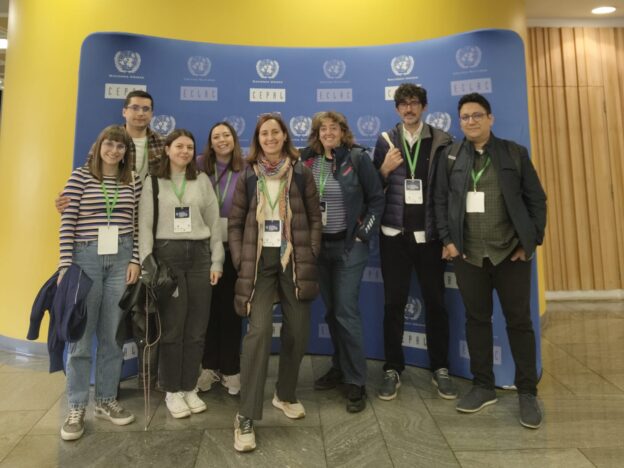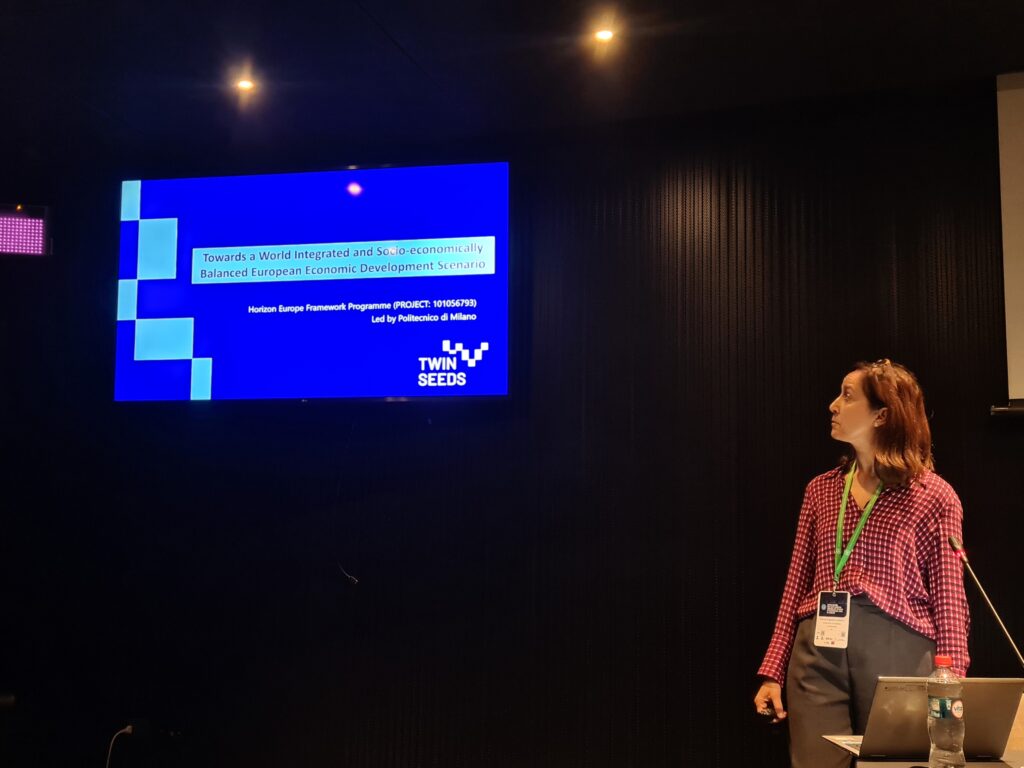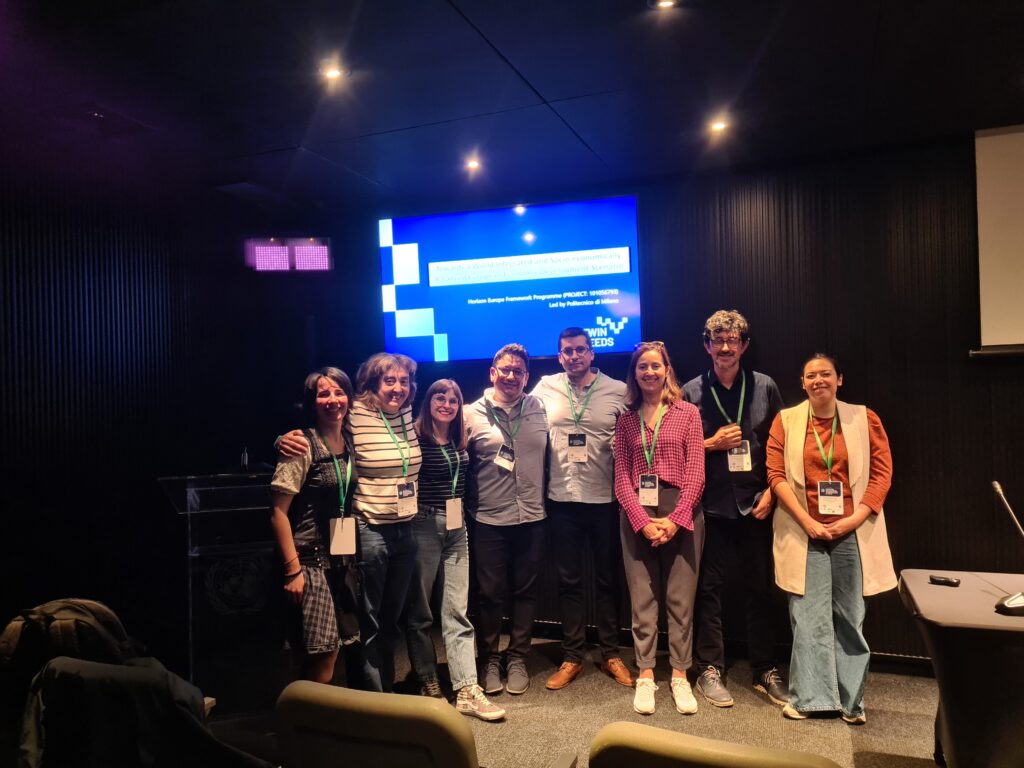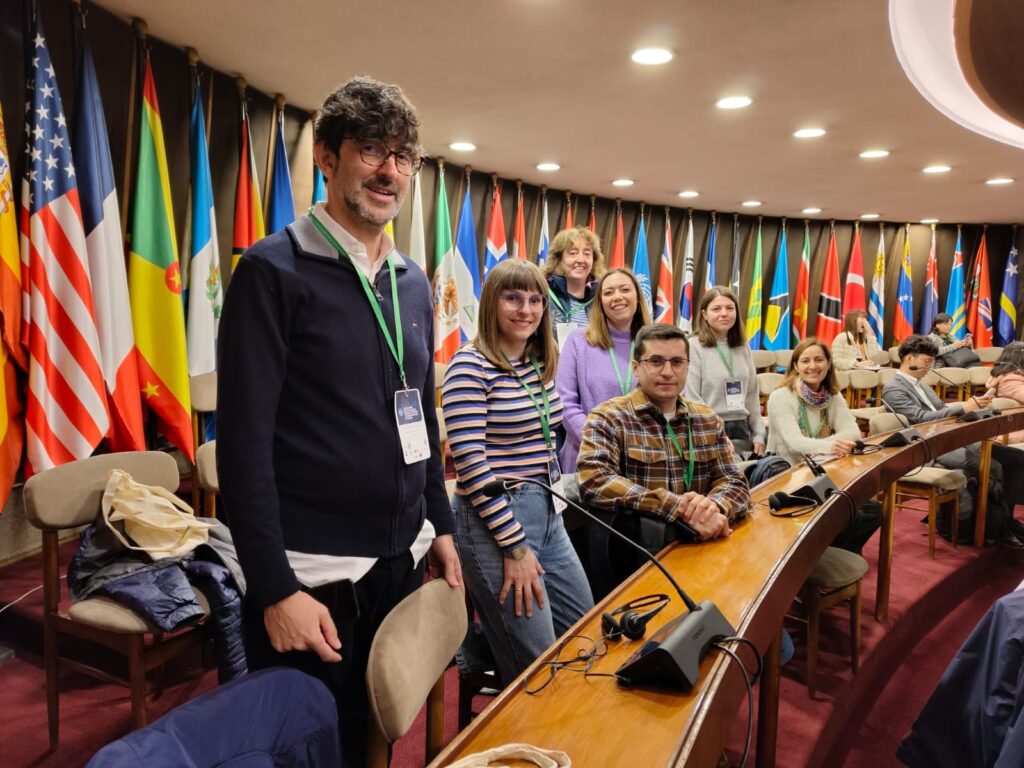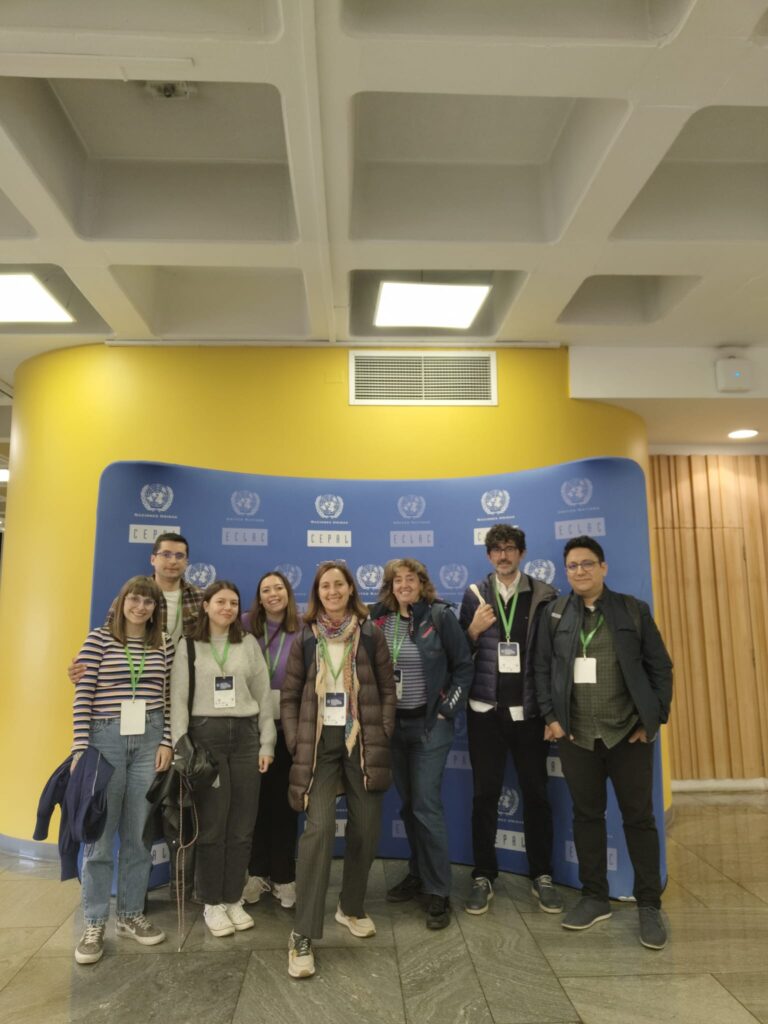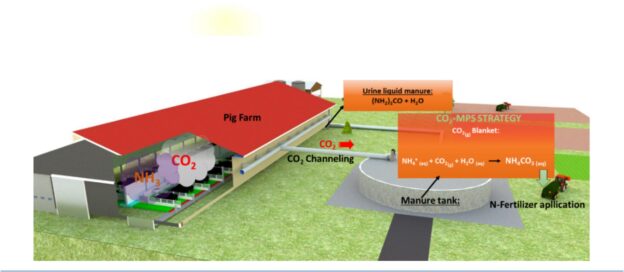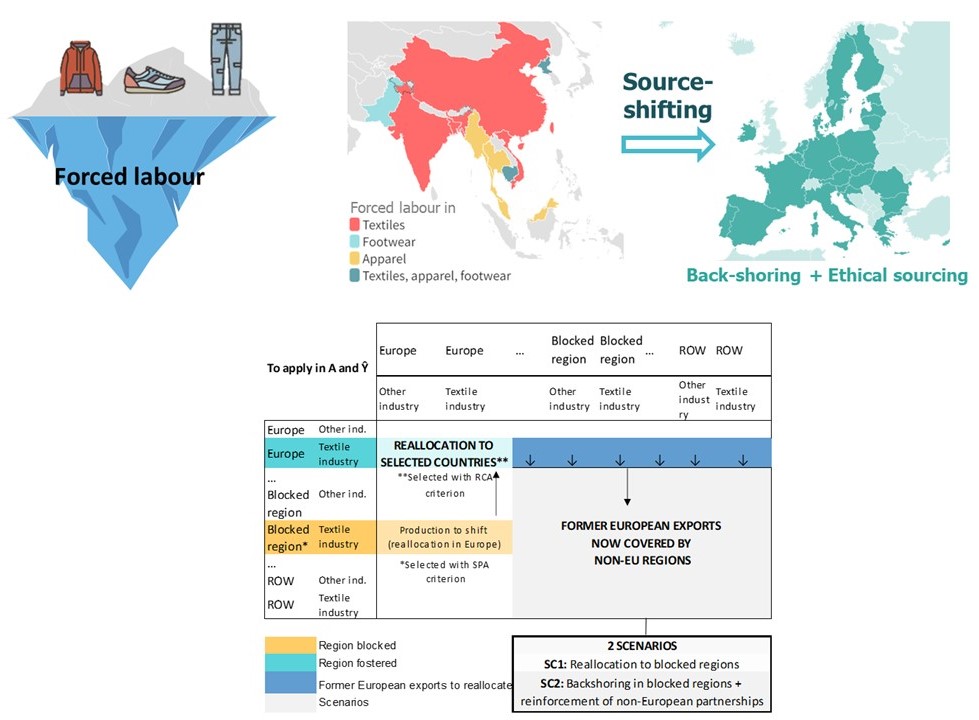Some members of the GEAR group attended the 10th Hispanic-American Conference on Input-Output Analysis organised by the Faculty of Economics and Business (University of Oviedo), which took place in Gijon on 4, 5 and 6 September.
Guadalupe Arce and Fabio Monsalve taught the course ‘Herramientas para la visualización de datos. Una aplicación para modelos MRIO’ in the fifth edition of the Input-Output Analysis School (ESAIO).
The group organized a special session entitled ‘Environmental, Social and Economic impact of global value chains reconfiguration’ in which the following papers were presented:
- Tracking the local drivers and global suppliers of urban scope-3 CO2 emissions: An application to the city of Madrid, 2013-2019. Jacobo Ferrer Hernández, Sergio Alvarez
- Quantifying the impact of shifting trade patterns on employment por Oscar Lemmers
- Environmental impact from MNEs technological transfers on right-sourcing strategies por Jorge Enrique Zafrilla Rodríguez, Mateo Felipe Ortiz Moreno, Nuria Gomez Sanz, Angela García Alaminos
In addition, the following papers were also presented by GEAR members in other sessions:
- Environmental impact from spanish food waste. Nuria Gomez Sanz, Daniel Molina Duarte, María Ángeles Tobarra Gómez, Pilar Osorio Morallón
- Climate-related direct, indirect and induced impacts of migration: evidence for Bangladesh. Marina Sánchez Serrano, Guadalupe Arce González, Angela García Alaminos, Jorge Enrique Zafrilla Rodríguez.
